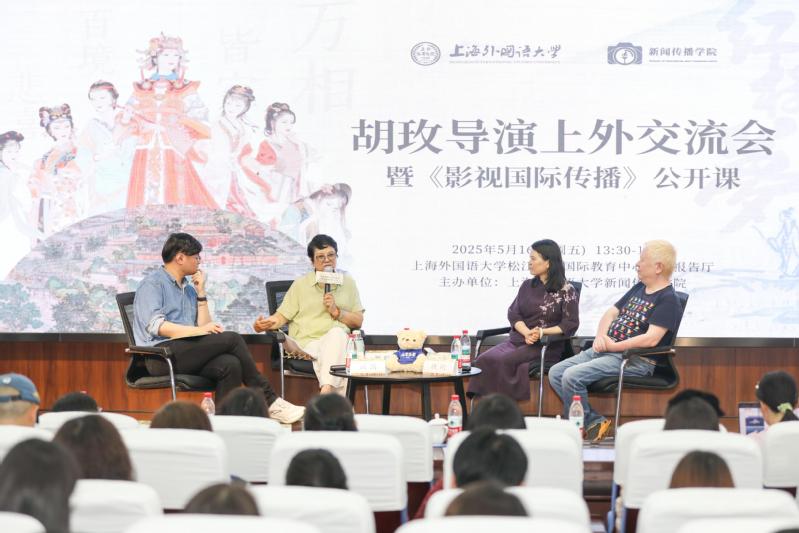
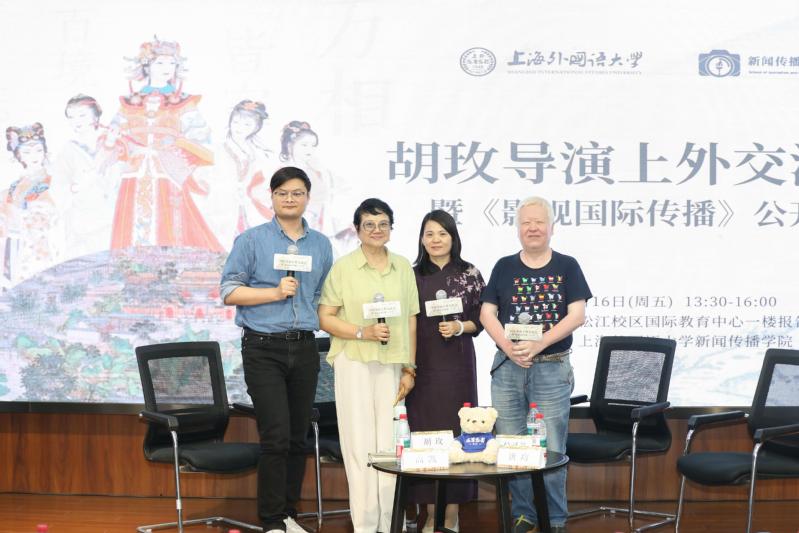
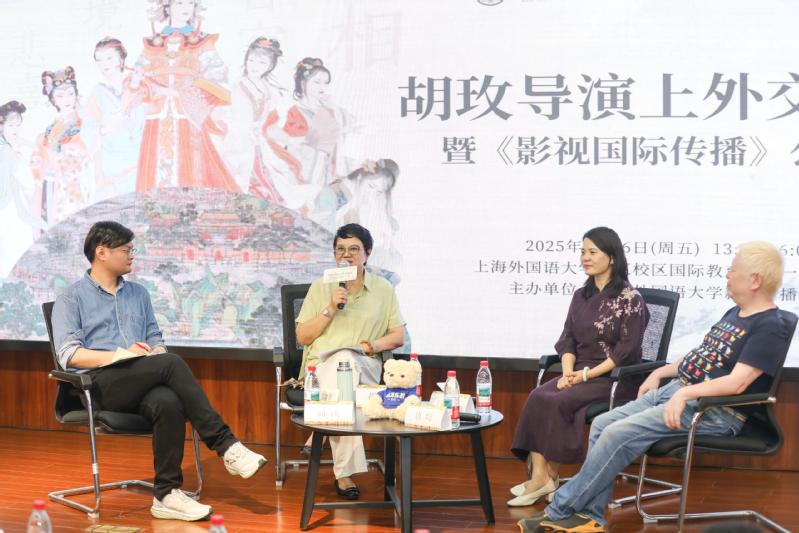
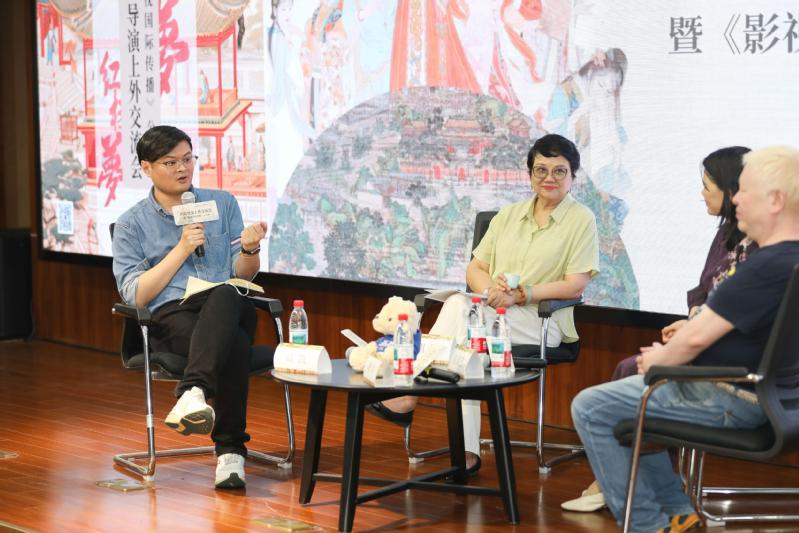
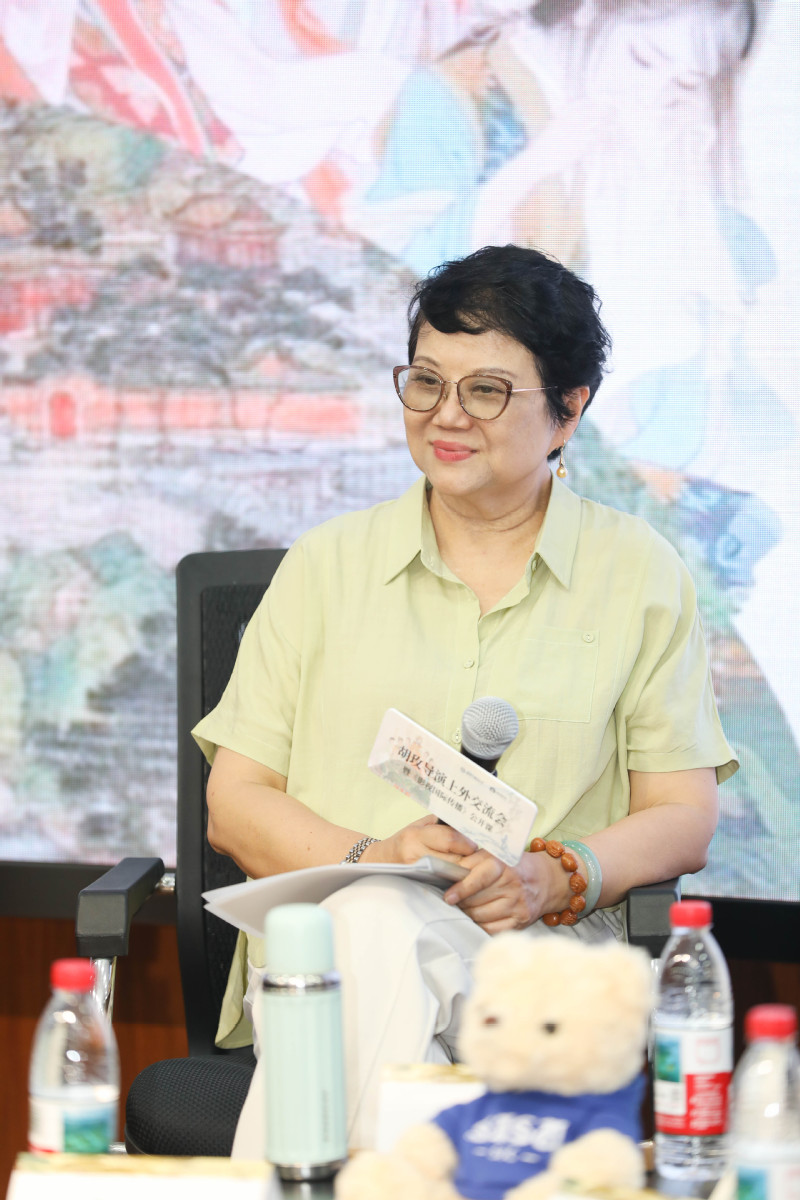
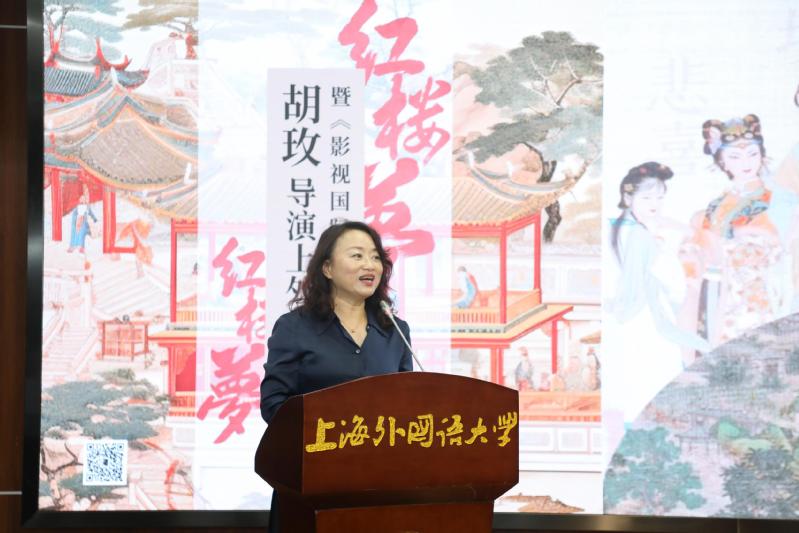
By Guo Yishun
Shanghai International Studies University (SISU) welcomed acclaimed filmmaker Hu Mei on May 16, 2025, as she presented her latest buzzworthy work, The Dream of the Red Chamber. The event, hosted by the School of Journalism and Communication, was part of the open lecture series on Global Communication in Film, curated by Dr. Gao Kai.
Widely regarded as one of China’s greatest literary masterpieces, The Dream of the Red Chamber (also known as Hong Lou Meng) was written by Cao Xueqin in the 18th century. The novel is a sprawling tale of love, family, and social decline, centered on the aristocratic Jia family and their complex relationships. Its profound exploration of human emotions and intricate portrayal of traditional Chinese society have made it a cornerstone of Chinese culture.
Hu, known as a leading figure among China’s Fifth Generation filmmakers, shared insights into her creative process in adapting the classic work onto the silver screen. “Back in 2012, I proposed at the National People’s Congress that Chinese films should play a greater role in international communication,” she said. “Film can intuitively convey the beauty of Chinese culture.”
Explaining her approach to the film, Hu highlighted the iconic “Daiyu Buries Flowers” scene, shot in the Tibet Autonomous Region amidst peach blossoms and snowcapped mountains. This stunning visual metaphor, she explained, reflects the characters’ fate through the grandeur of nature.
Adapting a literary classic posed unique challenges. “A film needs a clear theme and tight pacing, but it must still honor the spiritual core of the original,” Hu noted.
Focusing on themes of “conspiracy and love,” she reinterpreted the story of Baoyu, Daiyu, and Baochai through a youthful lens, while also addressing the Jia family’s decline. To capture the period’s authenticity, the production team trained 14-year-old non-professional actors in traditional arts and etiquette for nine months.
During a dialogue session, Hu was joined by scholars including Wei Lingzhi, Vice President of the Beijing Cao Xueqin Society, and SISU professors Tang Jun and Gao Kai. Wei praised the film’s portrayal of “refined living,” emphasizing the authentic representation of the Kangxi-Qianlong era. “With over 600 million-yuan worth of authentic props, it offers a genuine portrayal of the Eastern aristocratic aesthetic,” he said.
Professor Tang commended the decision to omit scenes such as Baoyu’s beating, calling it “a smart use of international narrative to tell a Chinese story.” Hu added that the film’s selection as the opening film of the Sino-French Film Festival and positive reception in countries like Japan and Malaysia reflect its global appeal.
Hu also emphasized the importance of professional translation to expand Chinese cinema’s international reach. “The internartionalization of Chinese cinema requires more than English translation. We need young talents fluent in multiple languages—precisely the kind of talent SISU nurtures,” she said.
Responding to a web novelist’s question on balancing artistic vision with market demands, Hu acknowledged the tension between self-expression and audience appeal. “We need to understand our audience, but we don’t have to compromise entirely. Life is a constant negotiation between self-expression and market response,” she remarked.
Reflecting on her career, Hu shared a personal milestone: “At 16, I vowed to see foreigners lining up to watch Chinese films. Forty years later, at the Toronto Film Festival, I saw audiences queuing for Confucius—my dream came true.”
Dr. Gao Kai concluded the event by highlighting the value of discussing art in an age dominated by short videos. “Spending three hours on these so-called ‘useless’ topics is proof of the enduring value of the humanistic spirit,” he said.
Professor Fan Juan, Party Secretary of the School of Journalism and Communication, praised the event for offering invaluable industry insight, reaffirming the school’s commitment to fostering globally minded, practice-oriented media professionals.
Hu Mei, renowned for works like Yongzheng Dynasty, The Emperor Han Wu, and The Qiao Family Compound, remains a trailblazer in Chinese cinema, blending historical depth with distinctive Eastern aesthetics.


 |Hongkou Campus|550 Dalian Road (W), Shanghai 200083, China |Songjiang Campus|1550 Wenxiang Road, Shanghai 201620, China
|Hongkou Campus|550 Dalian Road (W), Shanghai 200083, China |Songjiang Campus|1550 Wenxiang Road, Shanghai 201620, China